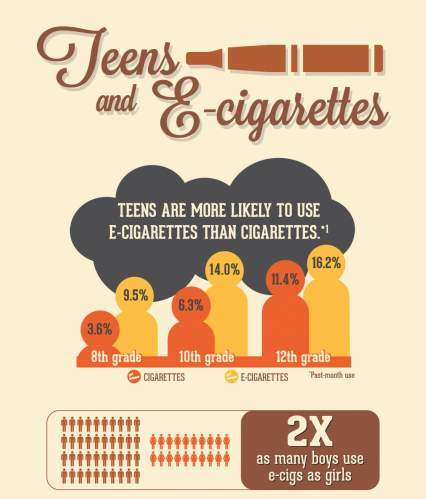
Boundaries with Teens
Setting boundaries is hard. Accepting other people’s boundaries can be harder. Here is a 60 second overview on boundaries with teenagers.
Helping teens grow and families improve connection,
Lauren Goodman, MS, MFT

Setting boundaries is hard. Accepting other people’s boundaries can be harder. Here is a 60 second overview on boundaries with teenagers.
Helping teens grow and families improve connection,
Lauren Goodman, MS, MFT

It’s hard to discipline a teen. They definitely have a mind of their own, and are usually pretty good at arguing. Here are some things to keep in mind based on what I’ve seen work with clients in my therapy practice.
1. The consequence should make them think about what they did and not about being frustrated with you. Many parents ground their kids or take away electronic devices whenever they feel their teenager needs discipline. The problem with doing this in every situation is that while your teen is home grounded on Saturday night, it’s unlikely they are thinking about what they did to be home. It’s much more likely they are resenting you for giving them that consequence.
2. Allow natural consequences whenever possible. Along the same vein as #1, allowing natural consequences teaches lessons. It also enables you as the parent to empathize with your teenager while they are suffering the consequence. Here’s an example: If your teenager gets a speeding ticket, have them pay for it, and pay for the increase in their insurance. You will get to say to compassionately say to them, “Yah, it really does suck to get a speeding ticket. I’m sorry you’re facing this.” Don’t ground your teenager for a speeding ticket. That doesn’t even make sense. Nobody ever put you on house arrest for a driving violation.
3. Follow through. I have seen many, many parents say they will have certain consequences if a given thing occurs, but not follow-through with it. This tells your adolescent that you can be bargained with. If they see a benefit in trying to negotiate with you, you’re just opening the door for talking back and other disrespectful behavior. If you’ve told them being home after curfew means they have to skip the next social event (a consequence that fits the crime), you have to stick to your guns. It’s hard to do when the next social event is a big deal that they’ve been looking forward to for a long time. It’s really tempting to alter your consequence in cases like that, but you just can’t if you want to be respected.
4. Stay calm. Once you start yelling they aren’t listening. Are you giving consequences out of an emotional reaction, or to teach a lesson? You really have to ask yourself this question and answer honestly. It should always be to teach a lesson and/or protect your teenager. Remember, you’re trying to raise a responsible adult and there are bound to be hiccups along the way. Hiccups are okay as long as you’re helping your teenager work towards being a functional adult. If you can stay calm they can still hear you.
5. Don’t just focus on the negative. Disciplining also means giving positive consequences when they’re due. While your child always has behavior you can correct, they are doing a lot of things right too. If you want them to keep doing those things, reward them for it. A reward can be as simple as telling them you appreciate that they are such a loyal friend. You don’t have to make a huge deal out of things and give them money, or take them out to a special dinner every time they do something good. You just have to acknowledge what you see. One of my favorite ways I’ve seen parents catch a teenager being good is when their child has followed curfew respectfully for quite a while, to tell the teen, “Next time you can stay out a half hour later. This isn’t a permanent change, but I just wanted to let you know I’ve noticed how responsible you’ve been.” That makes your teenager feel like a million bucks!
Yes, disciplining a teenager is a challenge. However, if you feel like you’ve tried and tried without success, consider whether you’re just trying the wrong things. When your teenager respects you because you know how to set up appropriate rules and limits, it leaves a lot more room for relationship and love between you.
Helping teens grow and families improve connection,
Lauren Goodman, MS, MFT

As a parent I understand the longing to intervene when my husband is disciplining our kids. I often want to change some of his words, or help my kids better react to what he’s saying. I want to explain things more clearly.
Likewise, as a wife I understand the temptation to involve my kids when I’m not getting along with my husband. I get irritated sometimes, and I’d love nothing more than to tell my kids about it so they can be on my side.
As you well know, in both cases I’d be wrong. I would create a triangle out of a situation that should be between only two people. This diffuses the anxiety in the situation, which is a relief. But, it also creates unhealthy patterns of not allowing a person to work through hard things in a relationship without a mediator.
If you want to have a more solid relationship with your family members, stop triangulating! At first the tension will feel worse. Ride out the storm because eventually the dynamics in your household will be healthier.
Disclaimer: This obviously excludes situations where things become abusive. In those cases stepping in to protect the victim is always advisable, whether that is you speaking up, or you calling the police if there is violence.
Helping teens grow and families improve connection,
Lauren Goodman, MS, MFT

Oppositional Defiant Disorder (ODD) is a psychological diagnosis usually reserved for teens and children. It is given when the child has a pervasive pattern of disobedient or disrespectful behavior and attitude. Most often this is seen across the board towards adult authority figures.
Here’s a hypothetical example. Let’s say Michael is 12 years old. For the last year he has been very sassy with his parents. He ignores them when they ask him to do something around the house. He argues with them just because. If they say go left, Michael goes right. There often isn’t even logic to his choices other than they are the opposite of what he was asked to do. He behaves this way in school too. He talks back to his teachers. He is in trouble a lot of the time and receives detentions for disruptive behavior. He comments frequently that something is “stupid” when they assign a project or homework.
Adolescents and children with ODD do not cross the line into violent or law-breaking behavior. They do not harm animals, get into physical fights, steal things, or find themselves in situations where they could be arrested. Children who go that far are usually diagnosed with Conduct Disorder. Oppositional Defiance is more like an extremely bad attitude in a wide array of situations.
ODD is a huge challenge for therapists. The reason is that teens and children with ODD want to argue with adult authority figures. It takes a lot of work on the part of the counselor to help the child see them as something other than an authority figure while still maintaining limits and boundaries.
From my work with teens who have ODD, I have found there are a few really important things to keep in mind. The first is that these kids don’t respond to discipline in the same way others might. Oftentimes disciplining a child with ODD is taken more as a challenge than as a chance to rethink bad behavior. Children with this diagnosis need to be caught doing good instead of only caught doing bad. Teens with this diagnosis have decided the only way to get what they need in life is to fight against people until they’ve worn them down. When you catch them being good, and praise them for it, they have a chance to see their needs get met while they are behaving.
The second thing is to be immobile. Plant your feet in one place and no matter how hard your teenager pushes, just stay right where you are (figuratively of course). You love your child deeply, and nothing can change that. Don’t stop loving them, don’t react to their attitude, and generally remain consistent in the message you send that no matter how hard they try, they won’t succeed in pushing you away.
The third thing that is of utmost importance when dealing with someone who is diagnosed as having ODD is that anger is useless. Yelling, showing very intense irritation, arguing and trying to be louder than the child will not work. Keeping the emotional level very low tends to be more effective for engaging conversation. Once you cross the threshold into trying to win the battle, you’ve already lost.
Oppositional Defiant Disorder is extremely difficult to work with, and a hugely frustrating thing for parents to contend with. Be very patient, remain firmly planted, catch them being good, and don’t match their desire to argue. The other good news is that ODD often resolves in a few years- getting help can speed this along.
Helping teens grow and families improve connection,
Lauren Goodman, MS, MFT

Helping teens grow and families improve connection,
Lauren Goodman, MS, MFT

For people who suffer from depression, anxiety, bipolar, OCD, etc., it can be hard to share this openly with family and friends. If your teenager has any of these diagnoses, the stigma is even more profound. As a rule, your teenager’s peers are not the most accepting when it comes to psychological struggles. On the surface they might be, but they tend to gossip about these things to their friends. In my work with teenagers I’ve noticed they are not the best secret-keepers. If your daughter takes an antidepressant and she confides in one of her friends, there is a decent chance a lot of other teens will find out.
This means you’re left with two approaches. The first is to encourage your kids not to tell anyone about their counseling, psychiatric treatment and challenges. While this will prevent them from experiencing teasing, it also might create a sense of shame in them. It’s tough too when they want to spend the night at a friend’s house and need to take a pill at the end of the evening. Their friend might be curious, which means your teenager will have to lie.
The second approach is to work hard with your teenager on not feeling shame. The thing I tell a lot of my clients is that even though they don’t know it, there are a handful of their friends who get medication and/or are also in therapy. I remind them that very likely some of the most popular, good-looking, athletic, smart kids in their school get counseling for things. I try really hard to help them know that emotional struggles happen to most people at some point in their lifetime.
If they can feel confident in their knowledge that they are just fine even if they have a psychological diagnosis, other teens will be more comfortable with it. It also really helps to have some others know in terms of getting support. There will be days when your adolescent needs a pick-me-up from their friends. If their friends know what’s going on, they might better know how to help them.
I had one client who struggled with OCD. It caused her to do a few things that were noticeable in social situations. She just confidently said she had OCD and then was able to laugh about it. Her friends felt a lot more comfortable after that, and laughed right with her. Another thing started to happen. Different teens would come up to her in confidence and tell her about their experiences with anxiety, depression, etc. Because she refused to give in to the stigma of mental illness being something shameful, she became a safe refuge for a great number of struggling teens.
The stigma associated with mental illness makes us want to hide. It makes us want to keep it to ourselves, and fight through it alone. Unfortunately that makes the battle a lot more challenging to overcome. When I struggled with an eating disorder my junior and senior year of high school I didn’t tell anyone. When it progressed and continued into college I was much more open about it. At that point I found I was able to get the support I needed, which was the first step toward healing. I want the same for your teenager.
Helping teens grow and families improve connection,
Lauren Goodman, MS, MFT